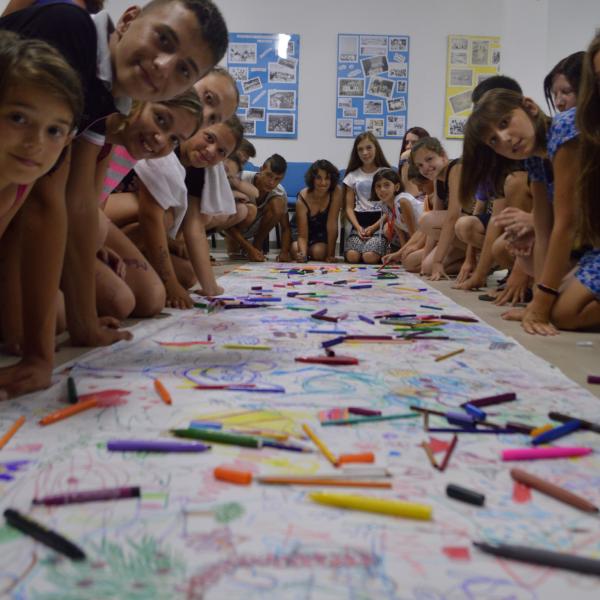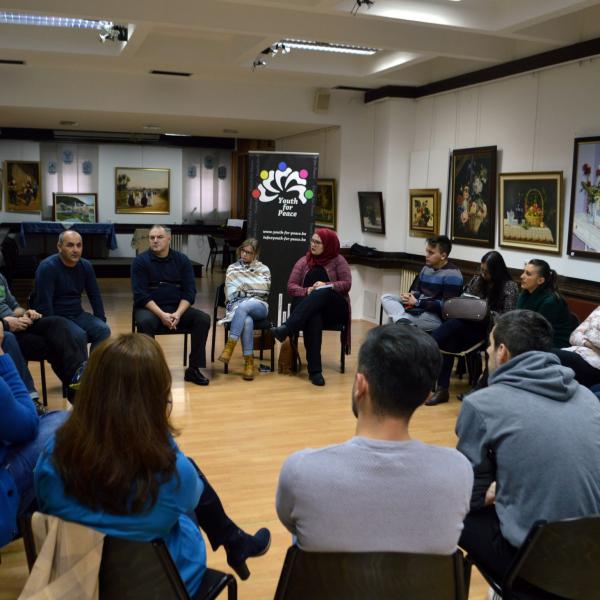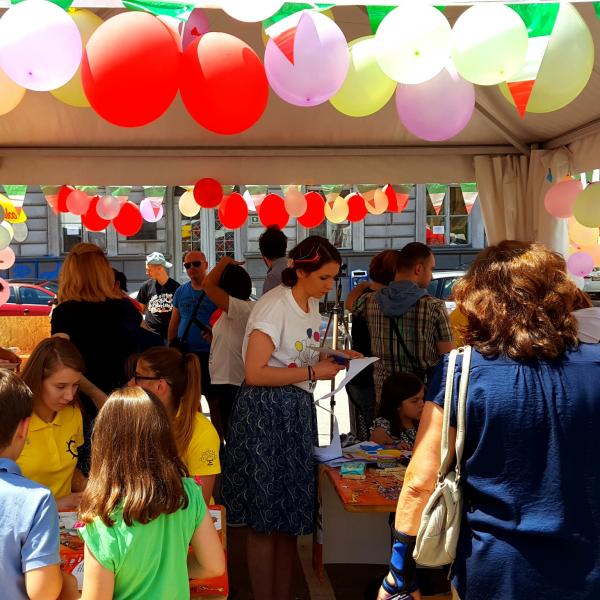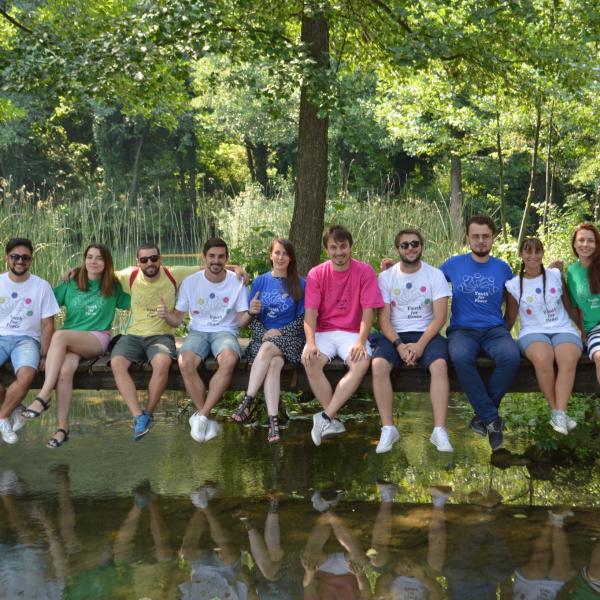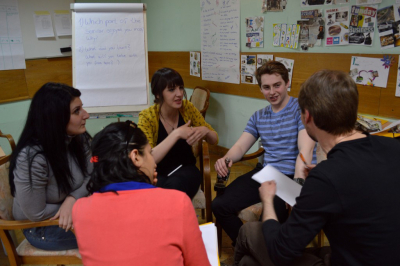
The aim of the seminar was to help young faith leaders to develop skills in communication across cultural divides and being able to engage in dialogue with people of different cultural or religious backgrounds. Seminar opened with interfaith prayers led by Daniela Malec – RfP EIYN Consultant, with fours participants representing different religion, presenting their welcome prayers of welcoming the other in accordance with their respective faith. First full day of the seminar was dedicated to group building sessions led by Thomas Gilet – Co-Coordinator of International Youth Committee of RfP.
During Day 2 participants took part in sessions on culture and "intercultural" - with emphasis on learning intercultural skills, as well participated in workshops on prejudices and cultural judgements, led by trainer Anna Kudarewska from Poland. Daniela, Thomas and 2 other members from Preparatory Committee (Annika and Rachel from WSCF) led role plays for participants; one on labeling people and judging people based on those labels, and how it feels to be stigmatized by some label and to be a member or a stigmatized group); second one on changing one's position in conflict discussion towards dialogue and listening.
Third day was dedicated to "dialogue" understood as a method to work with conflicted groups (developed by Nansen Center for Peace and Dialogue) and as way of life, as explained by trainer Christiane SEEHAUSEN from Nansen Center in Lillehammer, Norway. Christiane said dialogue starts with dialogue with ourselves, and active listening – this comes before exchanging thoughts. Listening to the other means empowering the other, lifting people up. Dialogue can only happen when two sides are equal partners. Dialogue means to make people visible, creating equality and building relationships. The goal of dialogue is understanding the other, as opposed to a debate, that has a goal of winning. Dialogue build bridges. It can be a way of living, but it requires working with oneself, be curious, open minded and interested in developing your self.
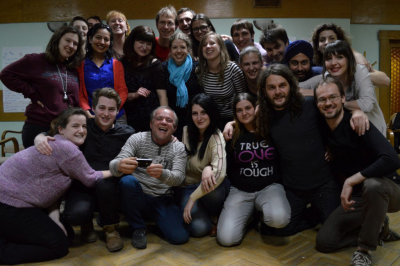
Day third ended with interfaith panel debate between experts in 3 Abrahamic religions – Islam (represented by Remona Aly from UK, journalist and Campaigns Director at Exploring Islam Foundation), Christianity (represented by Dr. Dagmar Heller from Switzerland, theologian and professor at Ecumenical Institute of Bossey), Judaism (represented by Jerzy Kichler from Poland, leader of Wroclaw's Jewish Community, former chairman of the Union of Jewish Religious Congregations of Poland). Panel discussion was led by Daniela – EIYN Consultant. The topic of the panel was "How to approach the Other in different religions" and three religious leaders spoke about teachings of their respective faith traditions regarding "the other" and approaching "the other, especially "the religious other" and about religious teachings on "welcoming the other", in fact present in each religion.
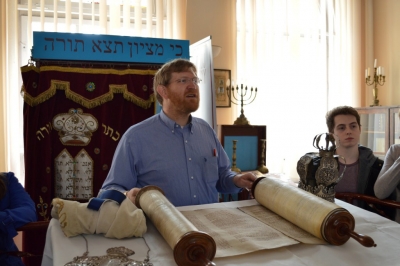
Last day of the seminar was dedicated to sessions showing practical successful examples of dialogue, and Vjekoslaw Saje from Bosnia and Herzegovina led two sessions presenting some good practices regarding conflict resolution, dialogue and reconciliation, with emphasis on Balkans. Vjekoslaw was actively involved in forming of Interreligious Council in Bosnia-Herzegovina in 1997, together with CSIS, Religions and Peace and 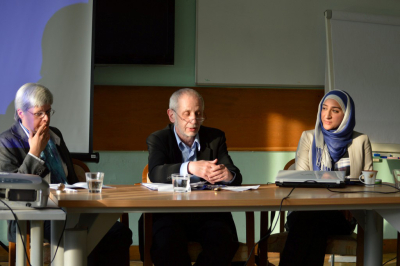
Apart from taking part in intense trainings and discussion sessions, seminar participants had also opportunity to participate in workshops led by participants on drumming and photography as well as mingle and get to know each other during evening intercultural programs of sharing songs, dances and food brought from different countries by the participants. Seminar finished, bridges were built, now let those bridges take us to building further bridges for peace, understanding and interfaith practical dialogue and cooperation.




